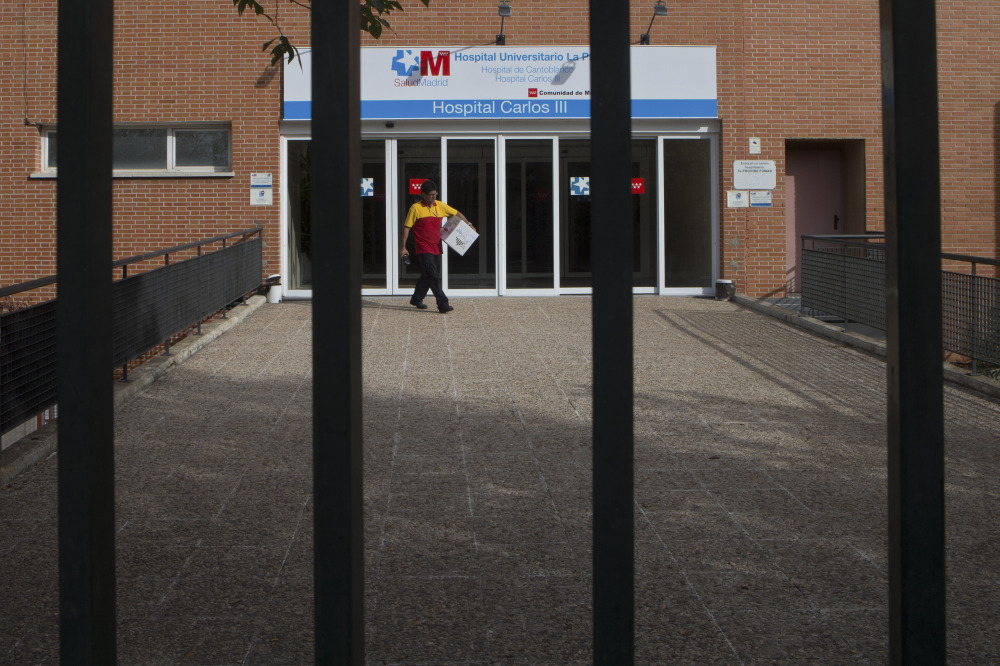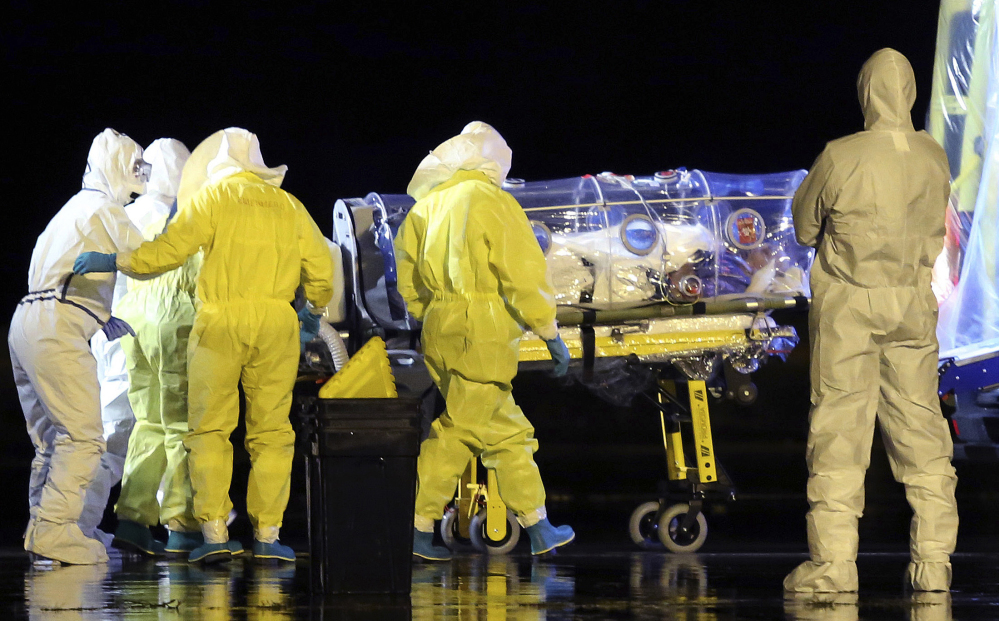WASHINGTON — Airline passengers traveling from West Africa could soon have to submit to body temperature checks and answer a questionnaire upon arriving in the United States as part of tougher screening requirements the Obama administration is considering in response to the growing Ebola threat.
“That’s the thing that’s on the table right now,” Anthony Fauci of the National Institutes of Health told CNN on Tuesday.
Tom Frieden, director of the U.S. Centers for Disease Control and Prevention, wouldn’t confirm the proposal Tuesday in a telephone briefing, but said additional precautions were forthcoming.
“We’re not today providing the steps that we plan to take, but I can assure you that we will be taking additional steps and we will be making those public in the coming days once we can work out the details,” Frieden said.
Health officials in Spain rushed to contain the Ebola virus Tuesday after it got past Europe’s defenses. They quarantined four people at a Madrid hospital where a nursing assistant got infected and persuaded a court that the woman’s dog must die, the Associated Press reported.
The first case of Ebola transmitted outside Africa, where a months-long outbreak has killed more than 3,400 people, is raising questions about how prepared wealthier countries really are. Health workers complained Tuesday that they lack the training and equipment to handle the virus, and the all-important tourism industry was showing its anxiety.
The Obama administration is moving to stay ahead of growing congressional calls for outright travel restrictions to the U.S. for non-citizens from Ebola-stricken regions of West Africa where the deadly virus is running rampant.
On Tuesday, Sen. Bill Nelson, D-Fla., called for a temporary ban on issuing U.S. travel visas to individuals in the affected areas. In a letter to Secretary of State John Kerry, Nelson said the restrictions – which would exclude medical personnel – should be in place “until the CDC determines the affected areas no longer pose a threat.”
“While there have been unheeded calls in recent weeks from lawmakers on both sides of the political aisle wanting similar action, I believe it is imperative the administration reconsider temporary, targeted travel restrictions at this time,” Nelson wrote.
The White House and the CDC have steadfastly opposed travel bans on West Africa, arguing the restrictions would make it harder to contain the spread of Ebola in Africa by discouraging international assistance in the area and making it difficult for people to leave the troubled region.
Of roughly 36,000 people who were screened before leaving West Africa in the last two months, only 77 were kept off flights because of illness, Frieden said. Many had malaria, but none are believed to have had Ebola, Frieden said.
The infected nursing assistant in Madrid was part of a special team caring for a Spanish priest who died of Ebola last month after being evacuated from Sierra Leone. The nursing assistant wore a hazmat suit both times she entered his room, officials said, and no records point to any accidental exposure to the virus, which spreads through direct contact with the bodily fluids of a sickened person.
The woman, who had been on vacation in the Madrid area after treating the priest, was diagnosed with Ebola on Monday after coming down with a fever, and was said to be stable Tuesday. Her husband also was isolated as a precaution. Another quarantined nurse tested negative, but a man who traveled in Nigeria remained in isolation.
Spanish authorities also were tracking down all the woman’s contacts, and put more than 50 other people under observation, including her relatives and fellow health care workers.
The potential repercussions of Ebola’s presence in Europe became clear when shares of Spanish airline and hotel chain companies slumped in Tuesday’s trading. Spain is Europe’s biggest vacation destination after France, and investors were spooked that the deadly virus could scare away travelers.
The Madrid infection shows that even in countries with sophisticated medical procedures, frontline health care workers are at risk while caring for Ebola patients.
As international aid to West Africa increases, Frieden said health workers are finally seeing progress in the area. He said “cases have plummeted” in Liberia’s Lofa County, which was once the “epicenter of the outbreak.” Frieden wasn’t sure what’s behind the improvement, but he said the abundance of isolation beds for Ebola patients and improved burial practices likely played a role.
“We don’t know that that decrease is going to be maintained,” Frieden said, but “even in a place that was the heart of the outbreak, we’re seeing signs of progress.”
Send questions/comments to the editors.




Success. Please wait for the page to reload. If the page does not reload within 5 seconds, please refresh the page.
Enter your email and password to access comments.
Hi, to comment on stories you must . This profile is in addition to your subscription and website login.
Already have a commenting profile? .
Invalid username/password.
Please check your email to confirm and complete your registration.
Only subscribers are eligible to post comments. Please subscribe or login first for digital access. Here’s why.
Use the form below to reset your password. When you've submitted your account email, we will send an email with a reset code.